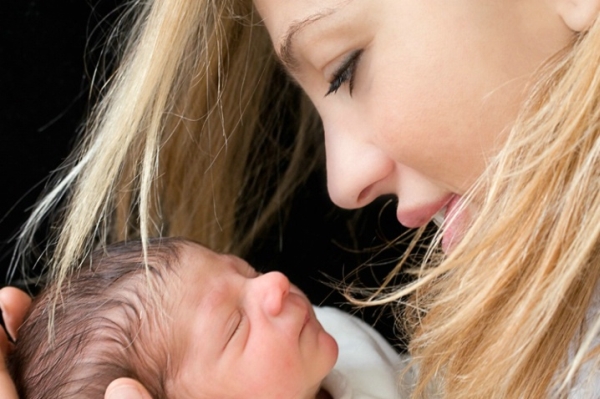
Women who breastfeed their babies have several concerns about the diet that they should take. They want a the diet which will be healthy for them as well as their baby. This concern at times also becomes a worry. The best part and a marvel of breast milk is that, even if you don’t eat properly it will meet your baby’s nutritional requirements. Since dietary lapses will not harm or reduce the nutrition of your baby’s milk, it doesn’t, however, mean that your body will also not be affected. When a breastfeeding mother’s body does not get the required nutrients from the diet, her body utilizes the body reserves to produce the milk for the baby. This results in depletion of the reserves and leads to weakness. On the other hand, a new mother needs a lot of stamina and energy to look after a new born baby.
The nutritious diet needs by a breastfeeding mother is more or less similar to that which a pregnant woman takes during pregnancy. So you can continue the same diet. The diet should consist of combination of food which is rich in nutrient and has less processed foods. Some general diet considerations for breastfeeding mothers are discussed below:
1. Calories
In comparison to the calories required during pregnancy, breastfeeding mothers need an extra intake of 500 calories per day . But they must ensure to get these calories by food which is rich in nutrient and is healthy. These foods can be veggies, fruits, whole grains, dairy products which are low in fat, and lean meat sources.
2. Protein
Similar as during pregnancy, 25 grams more of protein is required by breastfeeding mother, in comparison to the normal diet. This additional requirement can be gathered by including 6 to 7 ounces of lean meat (meat substitute) along with three cups of milk low in fat and other dairy products.
3. Fluids
Fluid requirement of breastfeeding moms is more than others. So have a glass of fluid after every time you feed your baby and also with meals and with snacks. Good options to include are water, milk low in fat , and fruit juice (100 percent natural) are good choices. Avoid soda, juice/fruit drink which are high in calories and sugar. Instead opt for water. You can also dilute the juice with water before consumption
4. Caffeine
Avoid high intake of caffeine. If only one to two cups of caffeine beverages are consumed in a day they might not have any effect on the baby, as majority of breastfed babies can tolerate reasonable amounts of caffeine. But to know for sure whether the caffeine is affecting your child or not, you need to closely monitor your baby (particularly babies who are less than 6 months old), as till 6 months babies are more susceptible to caffeine.
5. Alcohol
Breastfeeding moms should avoid alcohol as it passes into the breast milk easily affecting the baby. Even if you drink, restrict yourself to only one to two drinks per week. Hang around for least 2 hours before you breastfeed.
6. Fish having mercury
Fishes like swordfish , shark, tilefish, king mackerel and tuna steaks should be avoided by breastfeeding women, as these have high concentration of mercury in them. Along with this you should also not consume more than 12 ounces of sea food low in mercury per week. Low mercury sea foods are canned light tuna , shellfish, cod, salmon, trout, catfish and pollock. You may opt to avoid Albacore tuna as it quite high in mercury as compared to canned light tuna
7. Vitamin/mineral supplements
Normally the nutrient need of breastfeeding mothers is met by a well-balanced diet. Nevertheless at times it becomes necessary to take vitamin and/or mineral supplement. Consult your doctor before taking these supplements.
8. DHA
Breast milk normally has DHA, omega-3 fatty acid. DHA is significant for brain, nervous system and eye development in babies. So the breastfeeding women are encouraged and motivated to consume food like anchovies, cold-water fish such as salmon and sardines which are natural sources of DHA.
9. Low diet
If your diet is very low in calories (less than 1800 calories ) or if only one type food group is included in the diet and others are excluded, it will lead to depletion in the quantity and quality of milk.
Some breastfeeding mothers might find themselves extra hungry. This is no cause of worry but natural as the body is preparing itself for milk which comes from food they eat. Eat small meals and have healthy snacks between these meals. This will keep your hunger controlled as well as provide adequate nutrients to your body for preparing milk for your baby.


